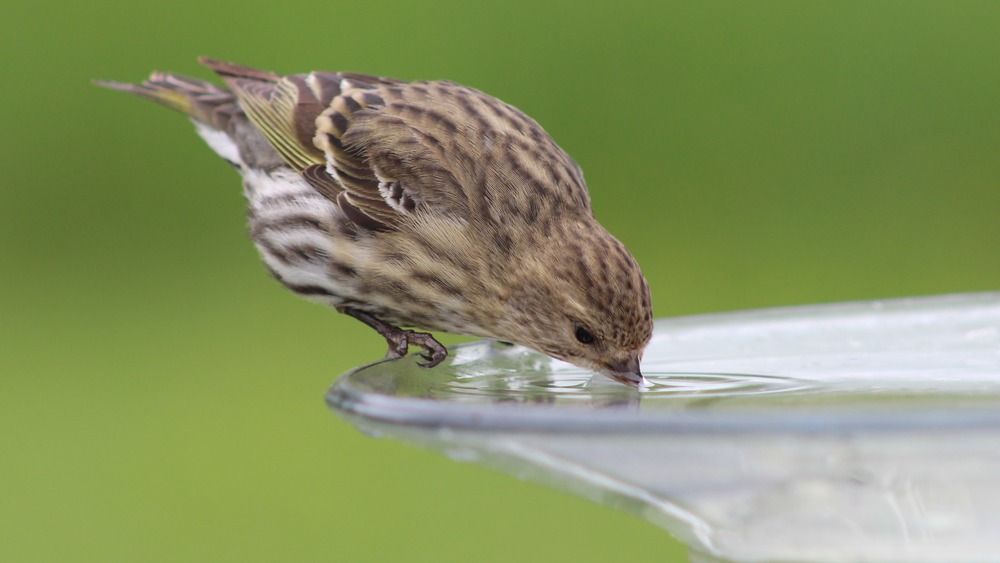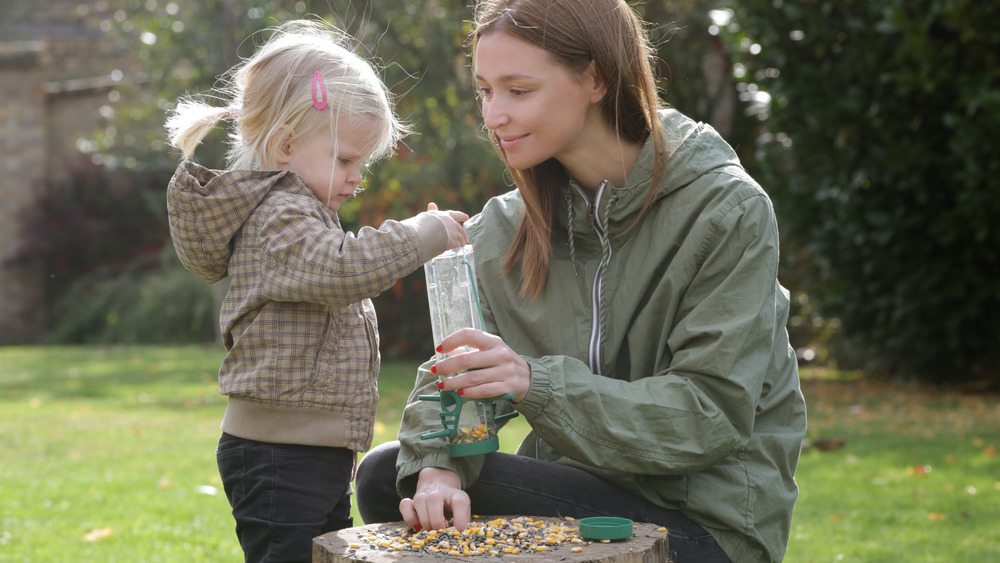The Real Reason Your Backyard Birds Could Make You Sick
Last week, the Centers for Disease Control and Prevention (CDC) released an investigation notice to the public regarding a recent outbreak of Salmonella found amongst a common type of backyard bird. Across eight states, a current tally of nineteen individuals have been reported ill, eight of which are facing more severe cases of infection having been hospitalized. When evaluated, many of these individuals reported having recently come in contact with a bird either directly or indirectly through a pet or the use of a bird feeder (via The New York Times).
The bird in question has been identified as a species of finch known as a pine siskins, a songbird characterized by its yellow markings which are known for gathering in large groups (via CNN). With outbreaks cited across various states including Washington, Kentucky, and California, the California Department of Fish and Wildlife (CDFW) has reported receiving a mass of calls from locals reporting the presence of sick or dead finches around their home bird feeders. After further investigation, the CDFW traced the source of the illness back to Salmonella-causing bacteria. According to experts at Mass Audubon, "Salmonellosis is caused by bacteria from the genus Salmonella and often begins as an intestinal-tract infection. The disease can spread rapidly at crowded feeding stations as healthy birds eat food contaminated by the droppings of sick birds."
Backyard finches are known for spreading salmonella through bird feeders
But Salmonella isn't the only disease spread amongst birds through the means of bird feeders. In 2015, a study conducted by researchers at Virginia Tech monitored flocks of backyard finches and discovered they were particularly prone to carrying and spreading Mycoplasmal conjunctivitis, a blinding eye disease in birds that poses symptoms resembling human "pink eye" (via Science Daily). In their additional 2018 study, researchers examined the nature of these pathogens and immunity in finches. Ariel Leon, a doctoral student aiding the study stated, "This research provides valuable insight into what is driving pathogens to become more dangerous in wild animals, which we know to be important sources of emerging infectious diseases in humans."
To keep yourself, your pets, and species of the finch population safe, the CDC advise frequent cleaning and sanitizing of bird feeders. Be sure to wash your feeder weekly in a sink or bathtub using warm water and soap. It's important to remember not to utilize a kitchen sink where fecal matter runs the risk of coming in contact with food. Afterwards, take additional disinfecting measures by soaking the feeder in a bleach solution for a period of ten minutes and allow it to dry thoroughly before returning it outside. Lastly, always be sure to wash your hands before and after handling the feeder. Should you experience any potential Salmonella-related symptoms such as a high fever, severe vomiting, or diarrhea, contact a medical professional right away for further diagnosis and treatment.


